Passenger ferries fascinate. They bring together all walks of life. A ferry is also a vivid metaphor for fate: a villager with a herd of sheep, a car smuggler, a bride straight from her sister's wedding, a politician, and a beggar—all crammed together, awaiting the same uncertain journey.
The Barra–Banjul ferry in The Gambia is one of the most captivating. The first challenge is simply buying a ticket and getting on board. Gambians have no mercy. At the ticket counter, there is no queue—just a swarm of yelling people. Thirty hands, each clutching money, reach out to the ticket seller. If you don’t shout like everyone else, you won’t be served in time, and the ferry will depart without you. Here, you must fight for space, just as everyone else does. Later, once on board, we will become friends again.
The first time I took the ferry, I sat on the upper deck, where I could observe everything. That’s where all the white passengers sit. This was before I learned about the lower deck.
The second time, an accident helps me. In the waiting room I meet Maryama traveling with her mother-in-law. Maryama carries a big bucket on their head, a baby on her back and two enormous bags in both hands. The gate opens and we rush to the ferry. Her mum grabs the baby and I take one bag to help, which forces me to follow Maryama.
Once on board, she slips through a small, inconspicuous door, and I instinctively follow. This is how I discover the lower deck. It is well-ventilated, shaded, and far more interesting. And unlike the upper deck, there are no white passengers. I sit quietly near Maryama and watch. The people here—their faces, clothing, jewelry, and hairstyles—are incredibly diverse and unfamiliar. I have no idea where they come from, but they must have traveled from far. I don’t dare take pictures.
People in Combo (the unofficial name for Gambia’s main town) wear differently. Take, for example, a common scarf design, below. It appears to be made from window lace curtains—the kind widely used in Eastern Europe—likely arriving here through Red Cross donation boxes.
Nearby, I meet Mali from Brikama. Mali is a carpenter and produces hand-made sofas. Here is Mali with family, transporting his product to his customer. Do you need one?
After an hour, we pass a peculiar sight. This ship, coming from Turkey is the local power station. In the Gambia, not much is produced locally (except iron gates and... sofas!), and even electricity is partially made in a guest power station that could drift away in an hour.
The journey takes up to three hours including waiting time. But only for silly and naive tourists like me. Peaking through the window, I notice a small boat approaching fast. I realize it is nothing else but a competition ferry. They overtake us in no time. It is twice faster and not more expensive. They don't carry useless ballast of life jackets, but use the available space more effectively...
As the journey ends, we pour out of the boat. People don’t walk; they run. I find myself lost in a human hive, impossible to describe. The mob sweeps me up, pushing me toward a chaotic lineup of thirty minibuses (shared taxis) waiting for passengers. Drivers yell, engines roar, people rush to their seats, and the last daylight fades. Still following Maryama, I carry her bag. She exchanges quick words with people, and within seconds, she finds a bus.
“Jump in,” she says.
Only then do I realize—her main concern was finding transport for me, not for herself. We say a quick goodbye, and she and her mother-in-law run toward another minibus. “It pays to be a gentleman,” a co-passenger says, winking at me.
Post Scriptum
more stories from Gambia
more stories from Senegal
more stories from Cape Verde

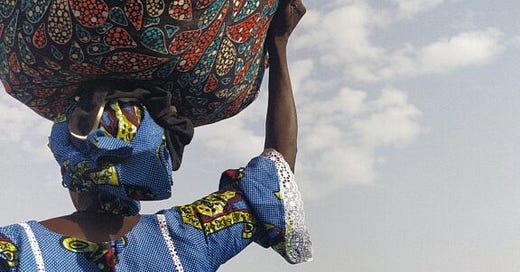


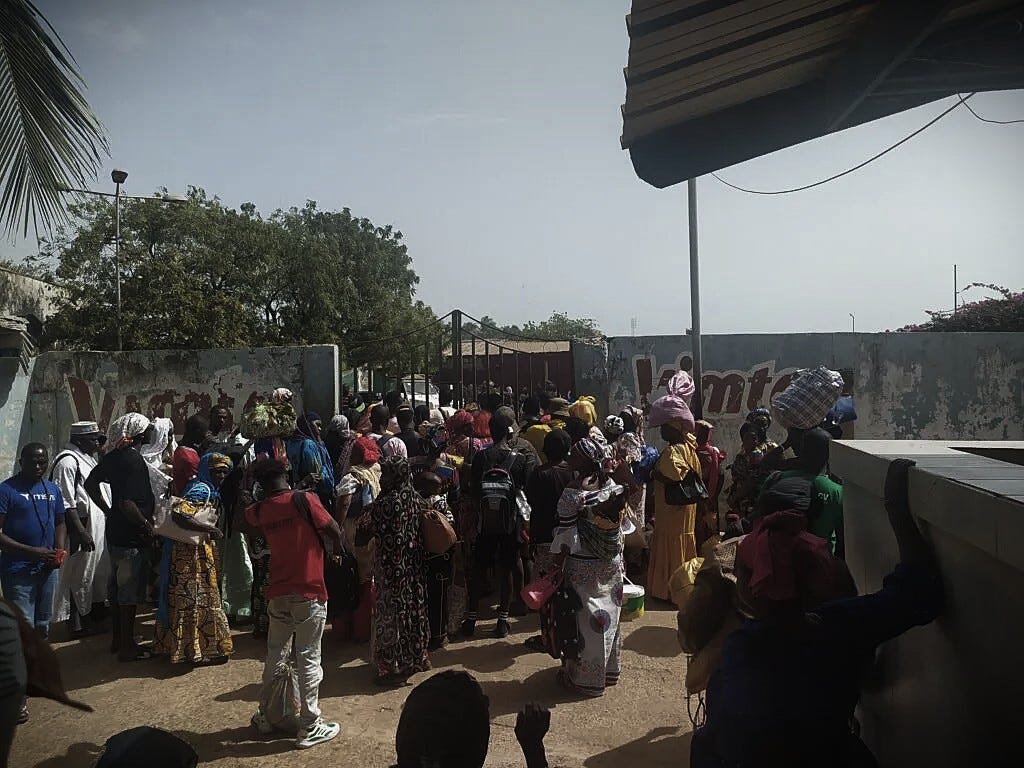
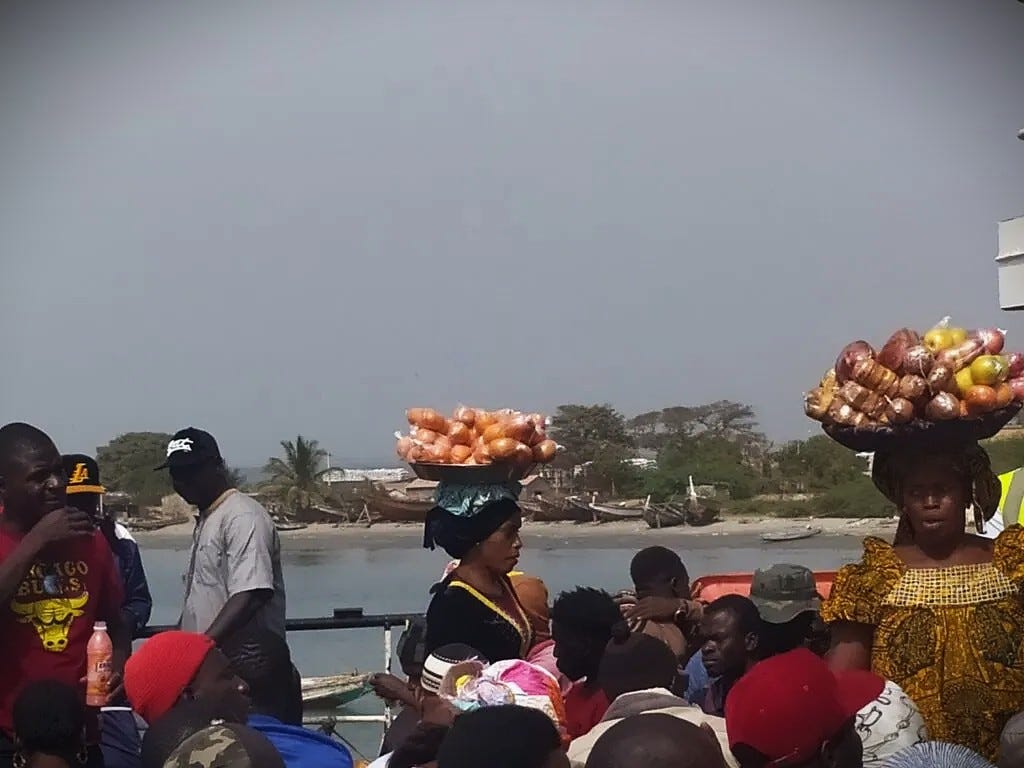

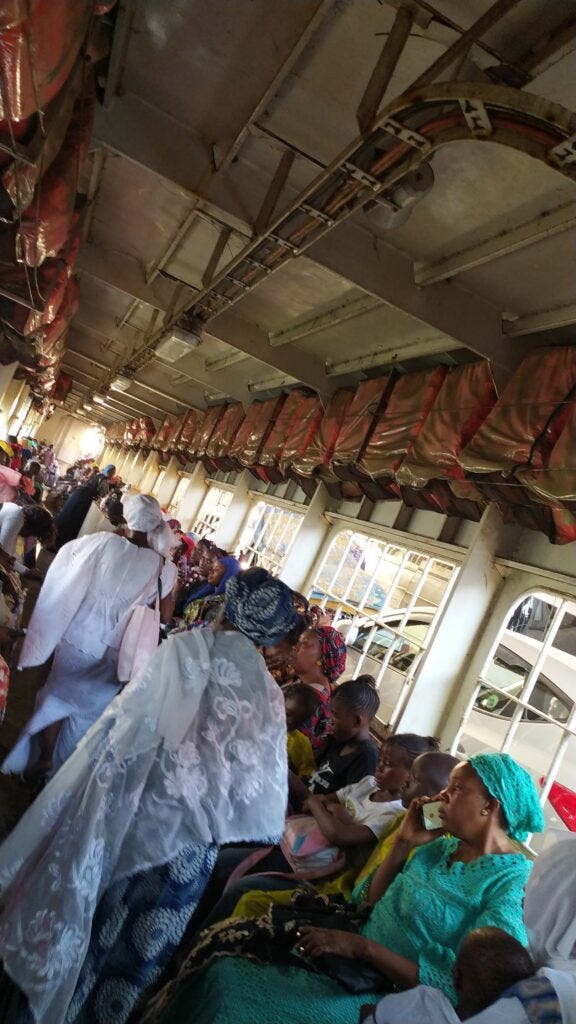
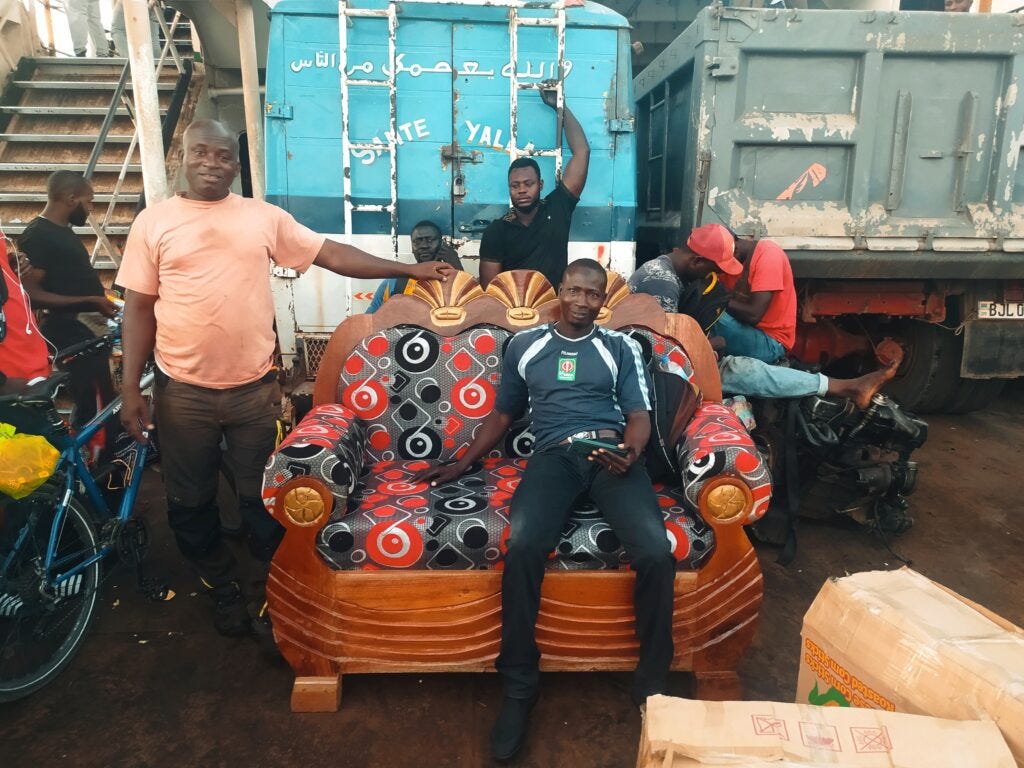
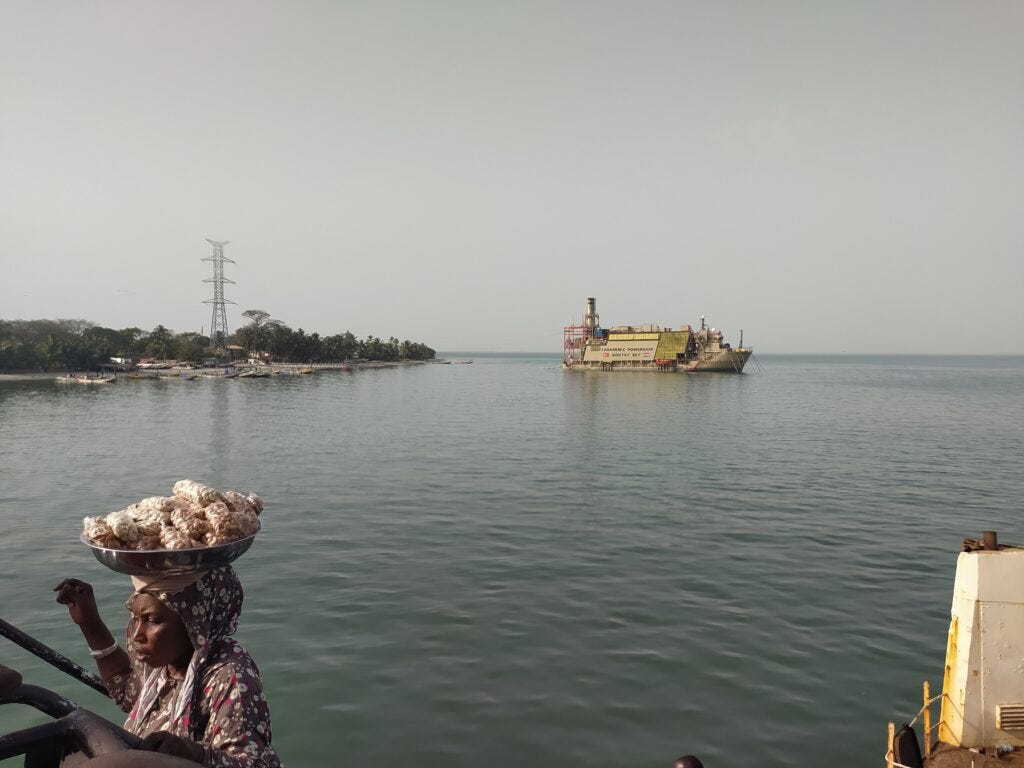
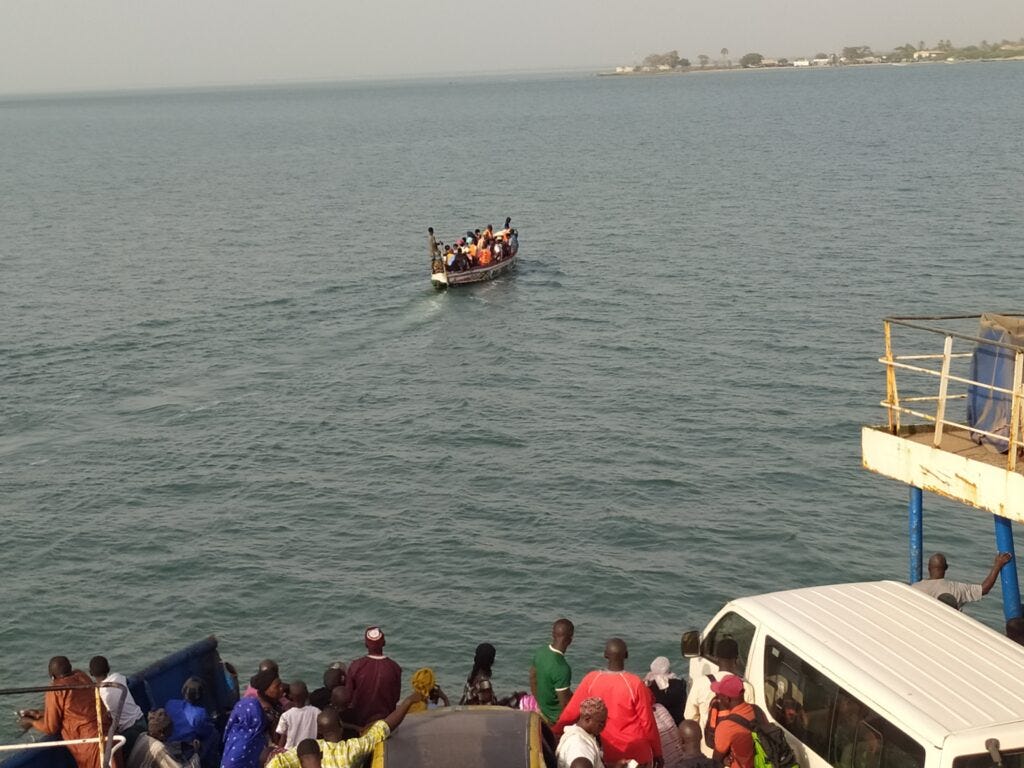
I remember the ferry vividly, I travelled on it after arriving in the Gambia on the Plymouth Dakar rally.
It was my first experience of meeting a blind beggar who recited the Quran from memory.
This is great! I recall riding that ferry many times, but one thing that sticks with me most was a guy selling small jars of mentholatum. He would sing that word, using the Big Ben clock's hour call. Men Tho Lat Um, Men Tho Lat Um. Men Tho Lat Um, Men Tho Lat Um. It is such a familiar tune, and I cannot hear it without thinking about Mentholatum, almost 50 years later. Here's the chime: https://www.youtube.com/watch?v=wqslA_CKub8